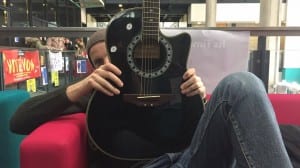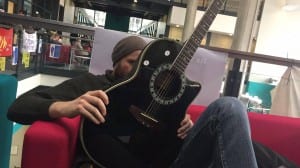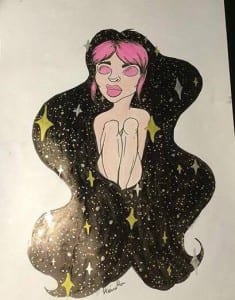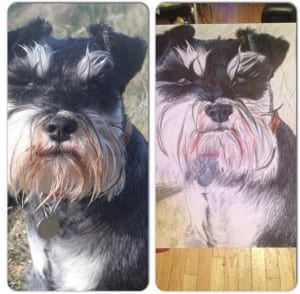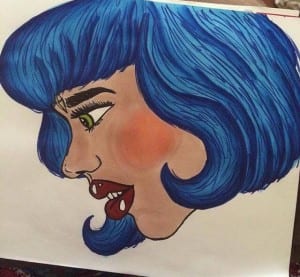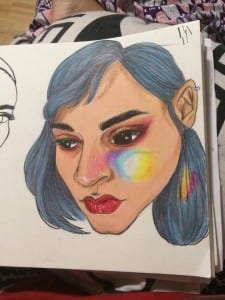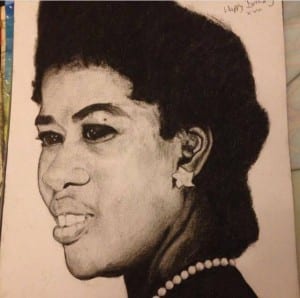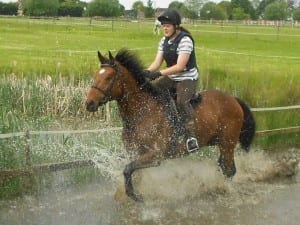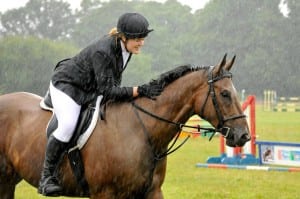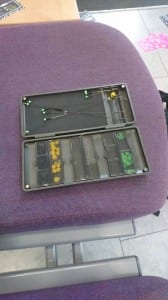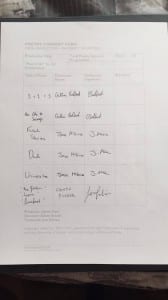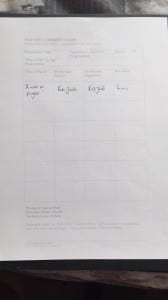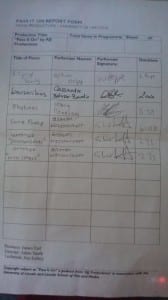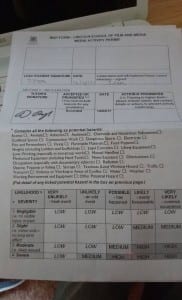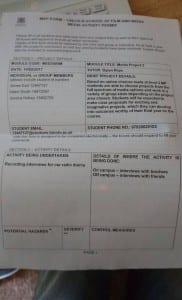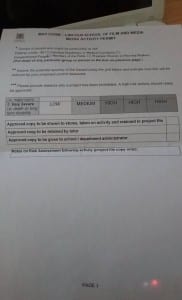‘Pass It On’: Radio Proposal and Treatment
Key: Everything in bold and italic highlights how our final product was different to the original proposal.
Lincoln School of Film and Media – University of Lincoln
Assignment No:
MED3005M
Group names/Roles:
Director – Adam South
Producer – James Earl
Technical – Jess Kelsey
Presenters – All
Editors – All
Title:
Pass It On.
Background:
Aims & Objectives –
‘Pass It On’ – A podcast show about life, learning and the lessons we teach each other.
Our aims with this project would be to meet the learning outcomes set by the module guide, via a podcast with a live exhibition element later, as well as to examine the diversity of the citizens within the local community, inform our audience about these individuals, and entertain the listener.
Unfortunately due to factors such as lack of time, we couldn’t do a live exhibition, but we made up for this by producing 2 podcasts rather than 1.
One key objective within these aims, is that we demonstrate the range that we feel exists in the city, of skilled individuals, not necessarily from well educated backgrounds – but that have particular skills, which they have honed and attempted to master over time. Part of this is to confirm the idea that talent is not always learned in a conformist, traditional manner, and that individualism and education should go hand in hand; that if one works hard for what they want, that they can achieve success – our contributors’ passions will exaggerate this.
Another key objective is to prompt some form of interaction in the locale between those whom might not necessarily otherwise interact – the live aspect is, to this end, one of the main ways we hope to achieve our outcomes. As well as to advertise the content of our podcast, the event will add an interactive layer to the work we will have created, allowing those who listened to come and experience additional content.
Although the live element never took place, we planned to set up a website and embed a social media element in to it, which will allow everyone involved, whether contributor or listener, to interact.
Finally, a main objective of the project is to obviously try and share, or ‘pass on’, people’s keen interests and passions, spanning age, race, class and gender, through the demonstration and investigation of the varying practises involved with each skill.
Key Contributors
As stated, the ambition with this project is to transcend the boundaries of the course and make a valid contribution to the local community – this will be reinforced by the contributors we gather and choose to include, both for the podcast edit, and the live event.
We firmly suggest that all manner of skills should get equal footing, as principally it should be the passion of the individual, and their character which should make for entertaining content – so for instance, if we had a pensioner whom has been making a specific dish their whole life, and has mastered the craft, or it’s recipe has been passed on in a particularly significant way; then this should go side by side with, for example, with someone who has taught themselves an instrument or another language say.
Ideally, for approximately one hour long podcast, we will have an elucidated number of contributors – the idea being, we can have passing segments throughout, with intermittent, key, longer, more entertaining / relevant / topical or more significant segments throughout. The organisation and arrangement of this may be based on the level of skill across the contributors, their individual authenticity, how willing they are to give us content, what turns out to sound the most interesting in the editing stage, or any number of factors. For this reason, we must attempt to gain as much material as necessary – we imagine, ideally, talking to at least a minimum of 10 to 15 people, at length.
Some interviews lasted longer than others, but we decided to edit each one down to around 3-5 minutes so everyone had an equal contribution. We spoke to 10 people in the end, which shows that we met our target of speaking to 1o to 15 people. We did have more interviews lined up, but we didn’t have the time to make any more podcasts, but don’t rule anything out in the future!
Content/Style/Structure –
The podcast would be about learning that occurs outside of the conventional classroom; and the notion of certain skills and knowledge that we crave rather than are simply prescribed.
This would involve loads of different, varying types of skills from the local community – people will talk to us about their specialist skills; be it a musical talent, or a knack for invention etc. or something more physical based and practical.
The range will consist of skills people have sought out, or were born with, or that have been passed down through generations of family; for instance, someone who may have learnt a language for their partner would be an ideal contributor to this piece, or perhaps a father and his son who inherits his craft or family trade.
The live aspect would come at the end, after the podcast is completed – this will be a small showcase and workshop exhibition, consisting of some of the people who contributed to the podcast, where they would demonstrate and/or try to teach visitors some of their knowledge – hence pass it on, not only the podcast title, but the inherent theme that runs through the project. With this, we not only hope to conform to the brief set out in the module of this course – but also to aid and abed in a substantial social demonstration, whereby the community can exploit this opportunity to showcase its diversity and to share some of the skills, from the meagre, basics that have been simply mastered to the very extraordinary, most artistically unique – which make Lincoln the luminescent babel that it is today.
Instead of a live exhibition, we asked people to demonstrate their skills while we interviewed them, so these could be included in the podcast. This included Cassandre playing her bagpipes, and Matt talking us through his fishing equipment. So although there was no visual element that we originally wanted, there was still an insight into everyone’s skill.
Audience/Station/Web –
The audience for our podcast should be completely un-restricted; by this I mean it should entertain/inform/and appeal to all ages, races, genders and classes of people. However, one key element inherent with this project is its stance on locality, of pride in the Lincoln community, and for this reason the audience, as well as our contributors, will be comprised of those from Lincolnshire and it’s surrounding areas.
This is not to say that audiences from across the globe, all around the world, should be kept from accessing the content we produce and finding something worthwhile, of interest and genuinely entertaining in the piece. Due to this reason, we feel that the podcast, while it could be made available for radio play locally afterwards – would debut online, hopefully with it’s own site; which we would promote and advertise leading up to and after the release. Furthermore, the site which contains the podcast, will also be utilised to promote the later event, garnering a presence, attracting interest over time in the lead up to the live date.
Treatment:
Section 1 (00:00 – 05:00) –
Introduction.
Presenters discuss the theme of the podcast and introduce a brief overview of content.
Section 2 (05:00 – 10:00) –
Contributor one.
Minor – this will be a shorter narrative, this will either occur naturally when gathering sources, or be achieved in the editing of the content.
Section 3 (10:00 – 15:00) –
Presenter discussion.
Brief reflection on the contributor.
Head up the next segment.
Section 4 (15:00 – 25:00) –
Contributor two.
Major – this contributor will be more substantial, as stated previously the justification for this may be as simple as the obvious choices that stick out, or a democratic vote through the group – either way there will be something significant about this person’s story, more so than the minor segments, for whatever reason.
Section 5 (25:00 – 30:00) –
Presenter discussion.
Brief reflection on the contributor.
Head up the next segments.
Section 6 (30:00 – 35:00) –
Contributor three.
Minor.
Section 7 (35:00 – 40:00) –
Contributor four.
Minor.
Section 8 (40:00 – 45:00) –
Presenter discussion.
Brief reflection on the contributor.
Head up the next segment.
Section 9 (45:00 – 55:00) –
Contributor five.
Major.
Section 10 (55:00 – 60:00) –
Presenter discussion.
Brief reflection on the contributor.
Outro and afterthoughts.
For our final product we did stick to the 5 contributors per podcast as planned, but we produced 2 episodes, rather than the originally stated 1. This happened because we found there was such a wide range of local talent and it would be unfair to make only 1 podcast when we felt we could definitely make more. We also gave each person that we interviewed an equal contribution as we felt that no skill is superior to another.
